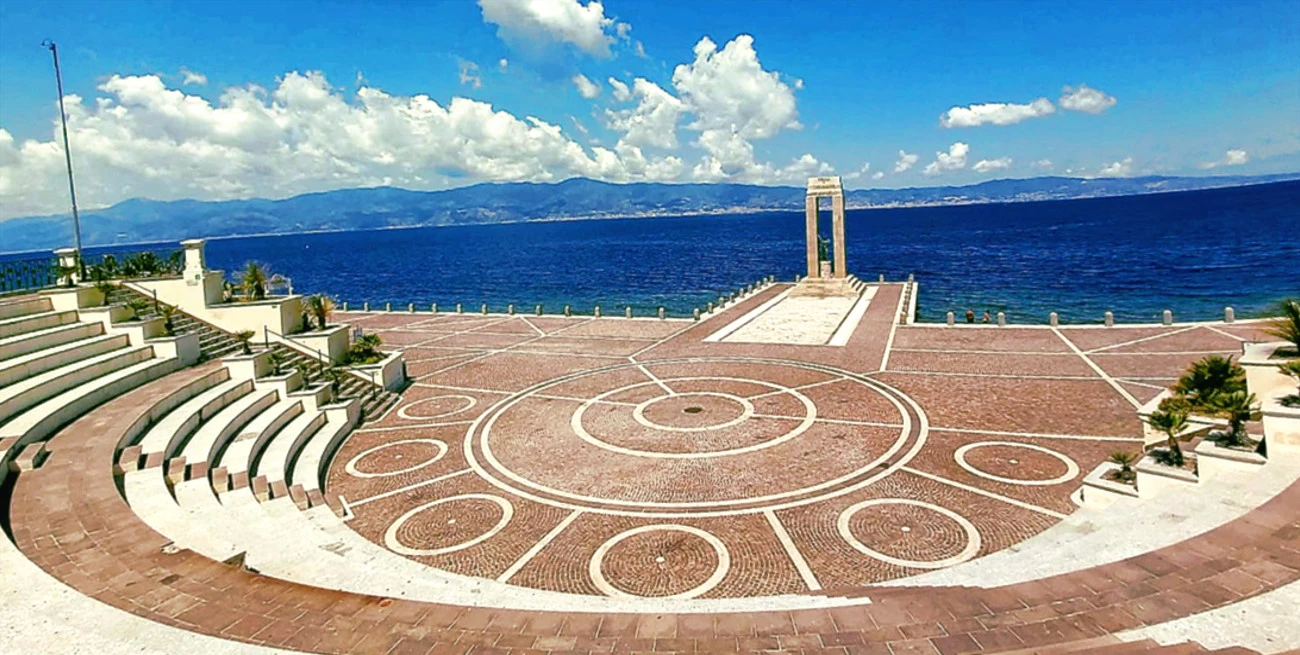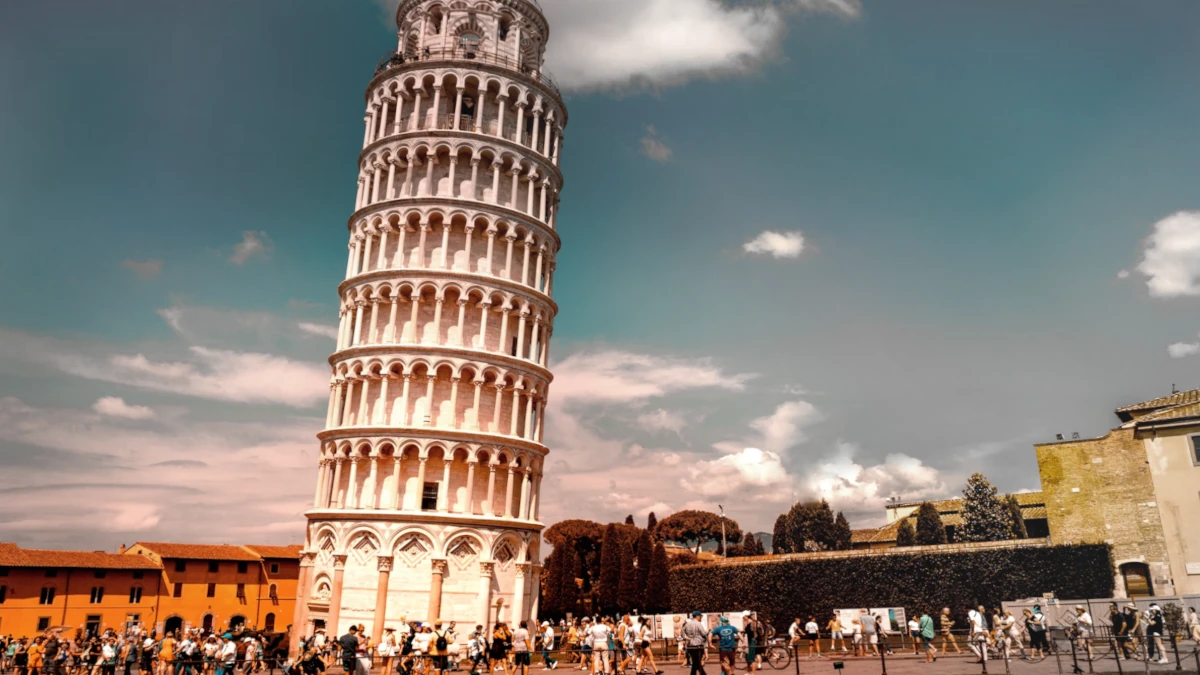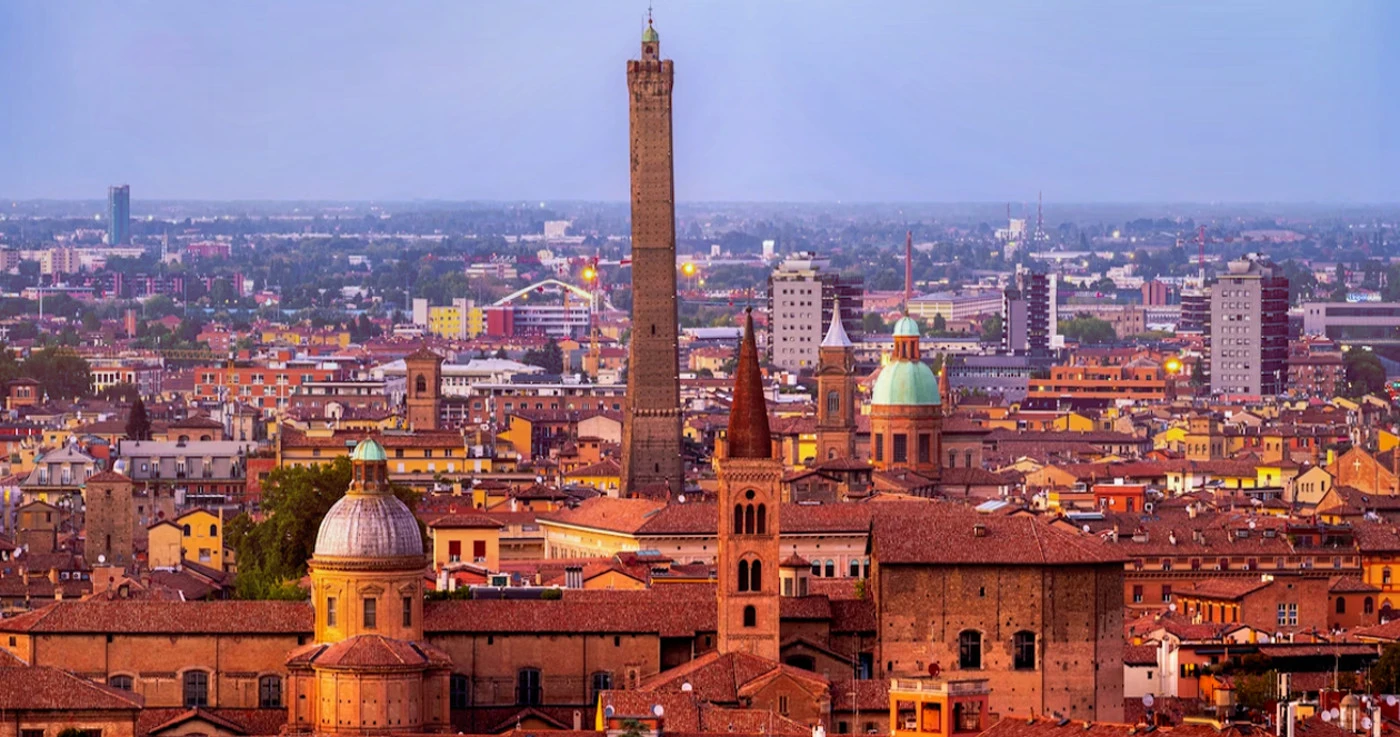Living in Palermo
Palermo is the capital and largest city of Sicily, the largest island in the Mediterranean Sea.It has about 720,000 inhabitants and a metropolitan area of over 1 million people.
It is a lively and colorful city, with a rich and diverse cultural heritage that reflects its long and turbulent history.
It has been influenced by various civilizations, such as the Phoenicians, the Romans, the Arabs, the Normans, the Spanish, and the Bourbons.
Living in Palermo as an expat can be an enriching and rewarding experience.
You can discover the beauty and charm of the city, its monuments, its markets, its cuisine, and its people.
However, you may also face some challenges, such as the traffic, the pollution, the bureaucracy, and the crime.
Palermo is located on the northwestern coast of Sicily, at the head of the Bay of Palermo.
It is surrounded by mountains, such as Monte Pellegrino and Monte Catalfano, and by the fertile plain of the Conca d’Oro, which is planted with citrus groves.
Palermo is the administrative and political center of Sicily, as well as a major port and commercial hub.
It is also an important cultural and tourist destination, with many attractions, such as the Palazzo dei Normanni, the Cathedral, the Teatro Massimo, and the Capuchin Catacombs.
It has a GDP of about €36 billion ($44 billion), making it the fourth-largest city in Italy in terms of economic output.
It is also one of the most densely populated cities in Europe, with about 4,500 people per square kilometer.
Search for:
What is Palermo like?
Palermo is a melting pot of cultures, religions, and traditions, that create a unique and fascinating identity.It is a city of contrasts, where ancient and modern, sacred and profane, elegance and decay coexist.
It is home to people from different origins, such as Sicilians, Italians, Arabs, Albanians, Jews, and Roma, who contribute to the city’s social and cultural diversity.
Palermo is also a city of art, music, literature, cinema, and gastronomy, with a rich and varied cultural scene.
It hosts many festivals and events, such as the Feast of Santa Rosalia, the patron saint of the city, the International Puppet Festival, the Palermo Pride, and the Palermo Film Festival.
Some of the most famous cultural attractions in Palermo are the Palatine Chapel, the Zisa Castle, the Martorana Church, the Quattro Canti, the Ballarò Market, and the Mondello Beach.
Climate
Living in Palermo means experiencing a typical Mediterranean climate, with mild winters and hot summers.In the summer, it’s sunny and dry, and you can enjoy the sea and the beaches.
In the winter, it’s rainy and windy, and you can admire the mountains and the countryside.
The spring and the autumn are warm and pleasant, with some rain and some sun.
You can see the flowers and the fruits, and enjoy the festivals and the events.
Palermo is very sunny and moderately rainy by Italian standards, but it also has some cloudy and stormy days.
The weather can be variable and unpredictable, so you need to be prepared for anything.
Economy
Palermo is the economic engine of Sicily, and one of the main cultural and tourist hubs in the Mediterranean.It has a diversified and dynamic economy, based on sectors such as agriculture, fishing, manufacturing, services, trade and tourism.
It is also a leading center for education and research, hosting several universities, colleges and institutes, such as the University of Palermo, the Academy of Fine Arts, the Conservatory of Music and the Institute for Nuclear Physics.
Palermo offers many opportunities for work and career development, especially for creative and qualified professionals.
However, it is also a very complex and challenging city, where the social and economic problems are serious and persistent.
Palermo is one of the poorest cities in Italy and Europe, but it also has a strong potential for growth and innovation.
According to the latest data, about 30% of the population in Palermo lives below the poverty line, and about 20% is unemployed.
The city also hosts a large number of immigrants, mostly from Eastern Europe, Africa and Asia, who often face difficulties in integrating and accessing basic services.
The city authorities have implemented various policies and initiatives to address these issues, such as urban regeneration, social inclusion, environmental protection and cultural promotion.
Education
Palermo is a student city, with a large and diverse student population.It has several public and private universities and colleges, offering a wide range of courses and degrees, from humanities and social sciences to engineering and medicine.
Some of the most prestigious and renowned academic institutions in Palermo are the University of Palermo, the Academy of Fine Arts, the Conservatory of Music and the Institute for Nuclear Physics.
The city also has many international schools, catering to the needs of expat families and children.
Some of the most popular and reputable international schools in Palermo are the International School of Palermo, the British School of Palermo, the French School of Palermo and the German School of Palermo.
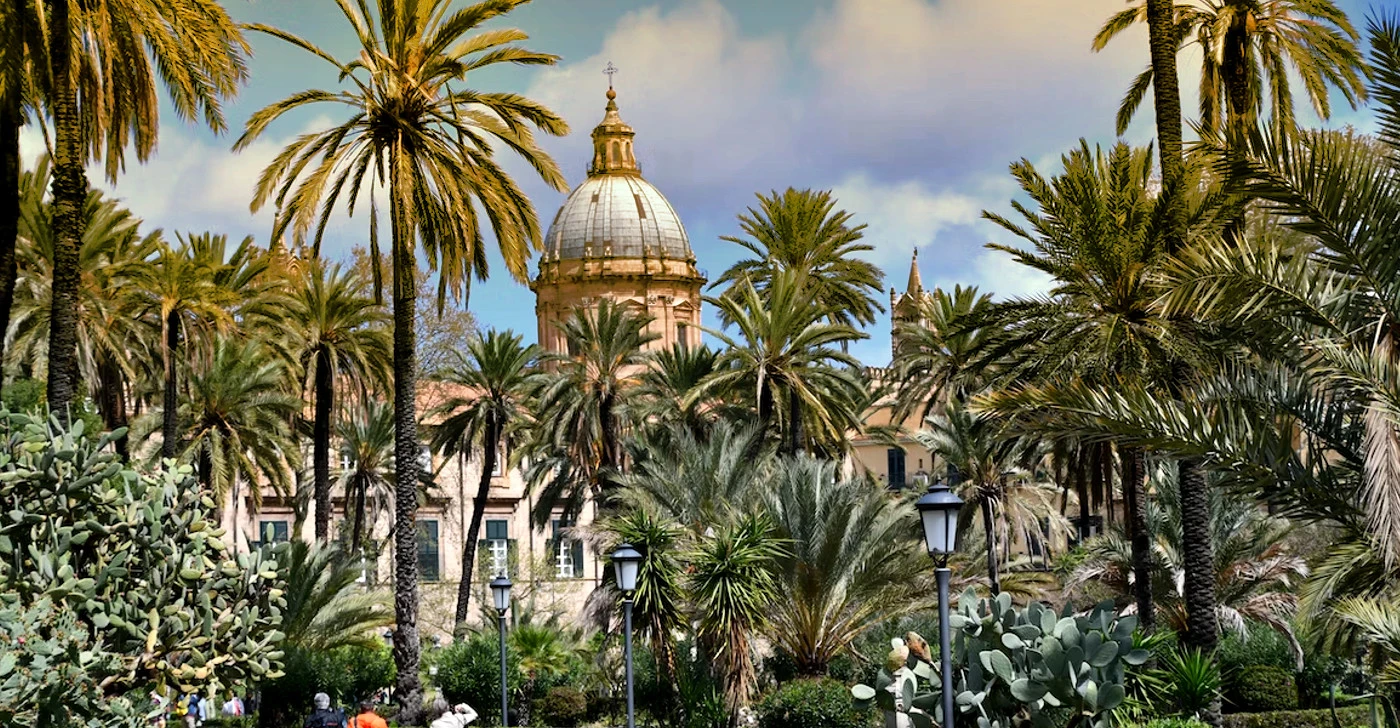
Cost of living in Palermo
The cost of living in Palermo is lower than in other Italian cities, especially in the north.A family of four estimated monthly costs are €2,500 without rent, and a single person estimated monthly costs are €1,500 without rent.
Rent in Palermo is also affordable, especially outside the city center.
For example, a one-bedroom apartment in the city center costs about €400 per month, while a three-bedroom apartment costs about €800 per month.
The prices of food, transportation, utilities, and entertainment are also lower than the national average.
However, some items, such as gasoline, cigarettes, and alcohol, are more expensive due to higher taxes.
Is Palermo safe?
Palermo is a relatively safe city for tourists and expats, with a moderate crime rate compared to other major cities in Italy and Europe.However, some precautions are recommended, especially in certain areas and situations.
The most common crimes in Palermo are petty theft, fraud, vandalism, and drug trafficking, which usually target crowded and touristy places, such as the historical center, the markets, the port and the buses.
To avoid these risks, it is advisable to be vigilant and careful, to keep your valuables close and secure, to avoid suspicious or aggressive people, and to report any incident to the police.
Palermo is also generally safe at night, but it is better to avoid walking alone in dark and isolated streets, and to stick to the well-lit and busy areas.
Pros and cons of life in Palermo
| Pros | Cons |
|---|---|
| Historic and cultural city | Chaotic and challenging city |
| Gastronomic paradise | Poor quality housing |
| Mild and sunny climate | Unreliable and inefficient infrastructure and services |
| Beautiful beaches | Dirty and polluted |
| Friendly and welcoming city | High crime rate |
| Language diversity | Low work and opportunities |
| Low cost of living | Conservative and traditional culture |
| Relaxed and laid-back lifestyle | Low quality of education, healthcare, and social services |
Advantages of Living in Palermo
Overall, Palermo is a historic and cultural city, with a unique blend of influences from different civilizations.You can discover its many UNESCO World Heritage Sites, such as churches, palaces, and monuments, and learn about its rich and diverse heritage.
It is also a gastronomic paradise, with delicious and authentic cuisine, influenced by Arabic, Spanish, French, and Greek flavors.
The city has a mild and sunny climate, with warm springs and summers, and mild winters.
Not only that, but you can also enjoy its beautiful beaches, such as Mondello, which are close to the city and offer crystal clear water and white sand.
Palermo is a friendly and welcoming city, where you can meet people from different backgrounds and cultures, and experience the warm and hospitable Sicilian spirit.
Italian is the main language spoken here, but you can also find people who speak English, French, Spanish, or Arabic, especially in the tourist areas.
The city has a low cost of living, compared to other Italian cities, which makes it affordable and attractive for expats and nomads.
Palermo has a relaxed and laid-back lifestyle, which allows you to enjoy life at your own pace and appreciate the beauty and charm of the city.
Disadvantages of Living in Palermo
Palermo can be chaotic and challenging to live in.You can face difficulties in finding quality housing, especially in the historic centre, where the buildings are old and poorly maintained.
You can also encounter problems with the infrastructure and services, such as water, electricity, internet, and public transportation, which are often unreliable and inefficient.
The city can be dirty and polluted, with litter, graffiti, and smog, which can affect your health and environment.
Palermo is not very safe, and the crime rate is high, especially in some areas, where you can encounter theft, scams, or violence.
You can also have trouble finding work and opportunities, as the economy is stagnant and the unemployment rate is high, especially for young people.
Moreover, the city can have a conservative and traditional culture, which can be restrictive and oppressive, especially for women, LGBTQ+, and minorities.
In addition to that, compared to other parts of Europe, Palermo can have a low quality of education, healthcare, and social services, which can limit your access and options.
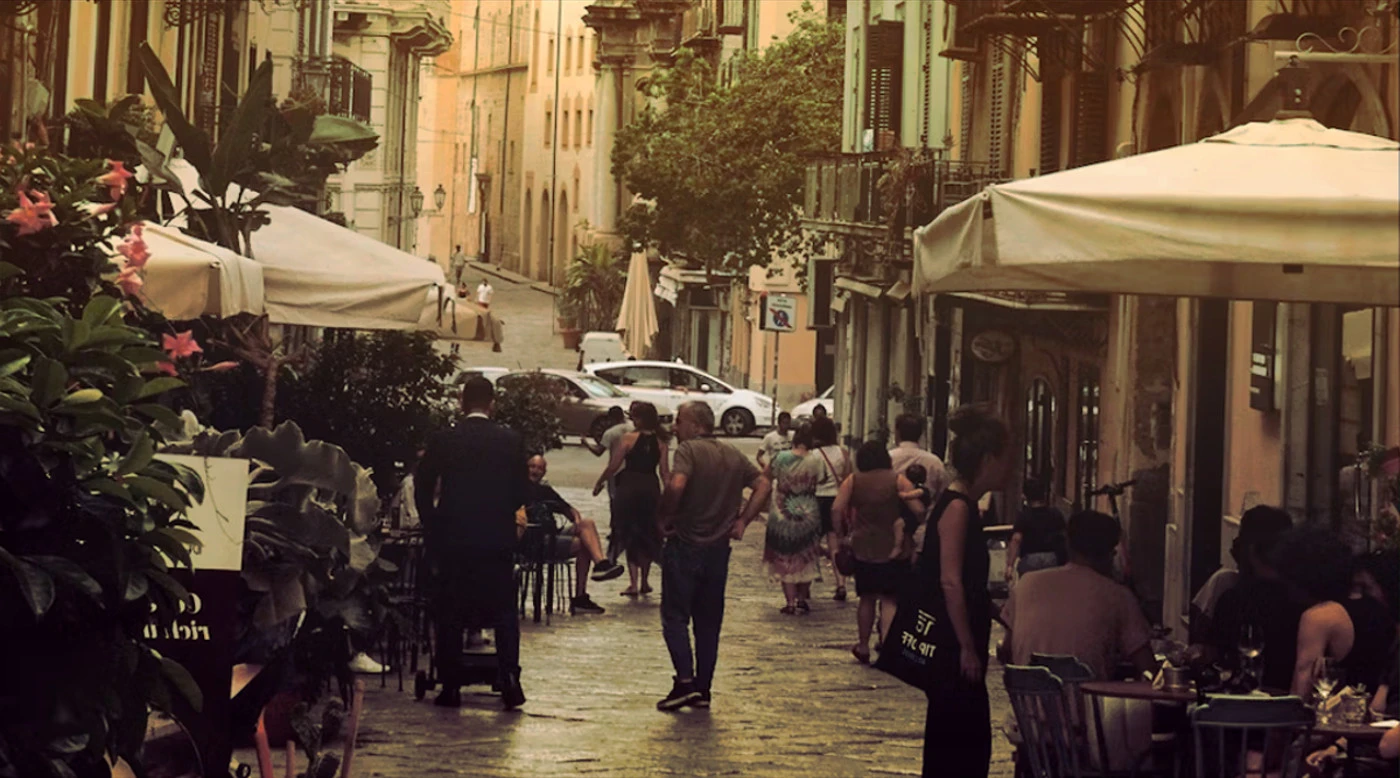
FAQs
What is Palermo like for foreigners?
Palermo is a historic and cultural city that attracts many expats from different countries and backgrounds.It is the capital of Sicily, the largest island in the Mediterranean, offering a variety of landscapes, traditions and cuisines for those who live there.
Living in Palermo as an expat can be both rewarding and challenging.
You can enjoy the benefits of living in a sunny and lively city that offers a lot of art, music, festivals and markets, but you also have to deal with the low quality of services, the pollution, the crime and the corruption.
Some of the best areas for expats to live in Palermo are Mondello, Politeama, Kalsa and Vucciria.
What is Palermo like for students?
Palermo is an attractive destination for students who want to study in Sicily or abroad.It is a city that offers a wide range of academic programs, from humanities and social sciences to engineering and medicine, from public and private universities and colleges to international and prestigious institutions.
Students in Palermo can benefit from a rich and diverse learning environment, a large and active student community, a varied and affordable cultural offer, and a lot of opportunities for internships and career development.
However, students in Palermo also have to cope with the low quality of education, the lack of resources and facilities, the high dropout rate, and the difficult job market.
What is Palermo like for women?
Palermo is a city where women face many challenges and opportunities, depending on their personal and social circumstances.Some women in Palermo struggle with the effects of sexism, patriarchy, and violence, which limit their freedom, rights, and opportunities in various domains, such as education, work, health, and politics.
Some women in Palermo enjoy the benefits of solidarity, support, and empowerment, which enable them to pursue their goals, interests, and passions in various sectors, such as tourism, social work, and culture.
Some women in Palermo experience a mix of challenges and opportunities, depending on their specific location, social class, family background, personal attitude, and individual choices.
What is Palermo like for LGBTQ people?
Palermo is a city where LGBTQ people face different levels of acceptance and discrimination, depending on their personal and social contexts.Some LGBTQ people in Palermo find the city to be relatively welcoming and tolerant, especially compared to other parts of Sicily or southern Italy.
They can access some events, festivals, resources, and services that cater to their needs and interests.
Some LGBTQ people in Palermo encounter the city to be prejudiced, intolerant, violent, or stigmatized, especially in some rural and traditional sectors of the society.
They have to deal with ignorance, homophobia, and discrimination that affect their safety, rights, and well-being.
Some LGBTQ people in Palermo adapt to the city by being discreet and respectful of the local customs and traditions, while also seeking support and community from other LGBTQ people or allies.
Is Palermo a poor city?
Palermo is a city that faces many economic challenges and disparities, compared to other Italian regions and cities.Palermo has a high poverty rate, especially in some of its suburbs and neighborhoods, where many people live in dilapidated and overcrowded apartments, and lack basic services and opportunities.
Palermo also has a high unemployment rate, which affects mainly young people and women, and is linked to the low quality of education, the lack of public investment, and the presence of the underground economy.
Palermo’s economic growth has been slow and uneven, despite its potential in tourism, services, commerce, shipbuilding, and agriculture.
Palermo’s development has been hindered by the corruption, violence, and extortion of the Sicilian Mafia, which still controls many sectors and territories of the city.
Palermo is considered one of the poorest and most backward cities in Italy, with a per capita GDP of 18,500 euros in 2017, which is less than half of the national average of 38,500 euros.
Is Palermo dirty?
Palermo is often considered a dirty and chaotic city, due to the lack of proper waste management, the traffic congestion, the air and noise pollution, and the decay of many historical buildings.That said, Palermo also has many green areas, such as parks, gardens and beaches, where locals and tourists can enjoy the natural beauty of the city.
Palermo’s cleanliness has improved in recent years, thanks to some initiatives and campaigns aimed at raising awareness and promoting civic responsibility among the citizens.
Is Palermo walkable?
Palermo is a city that has a low level of walkability, as it is chaotic, noisy, and polluted.It also has a limited public transport system, with buses, metro, and trams, that is often unreliable, overcrowded, and unsafe.
Walkers in Palermo can however benefit from a rich and diverse cultural heritage, a lively and colorful street life, and a warm and sunny climate.
